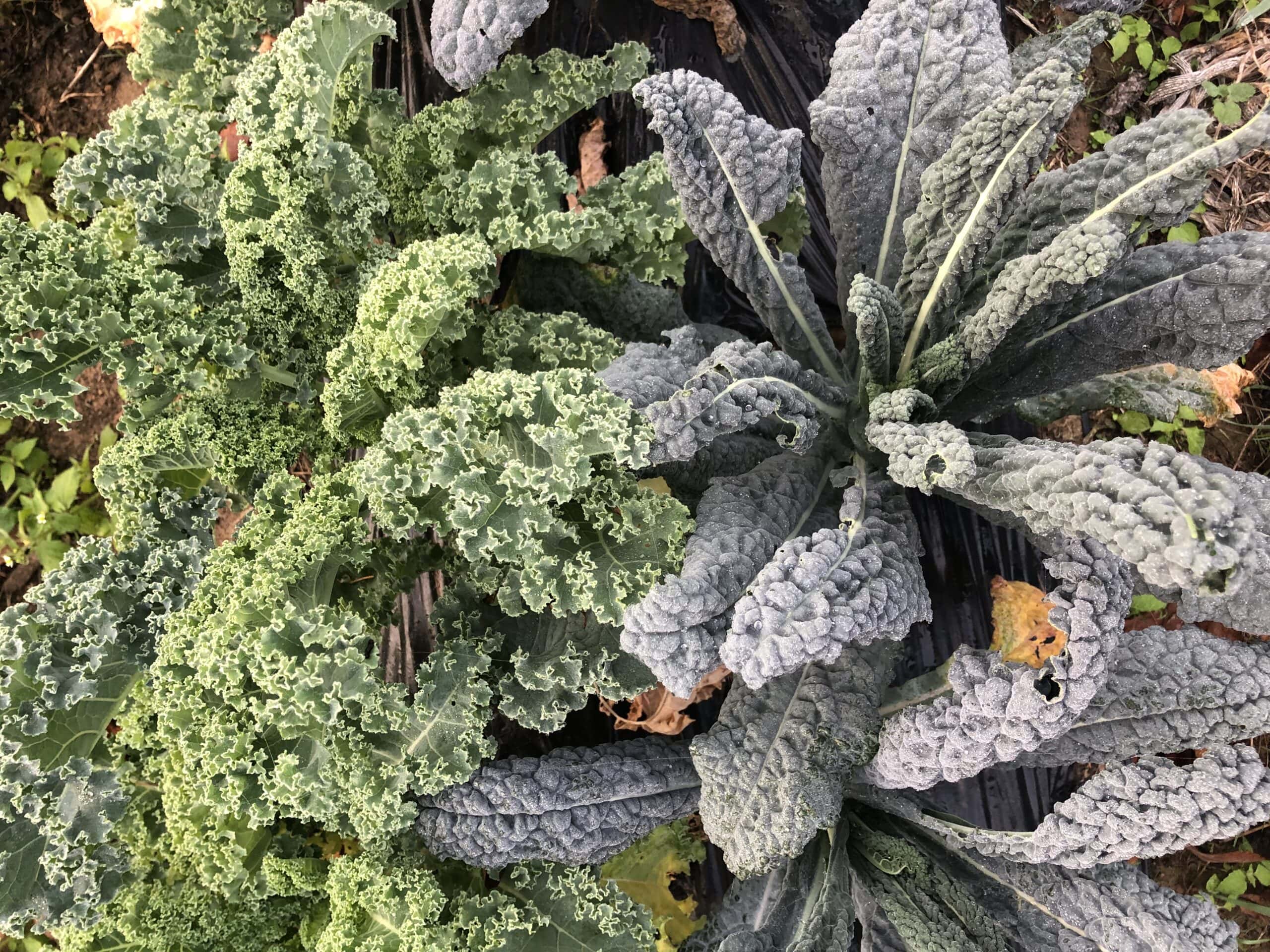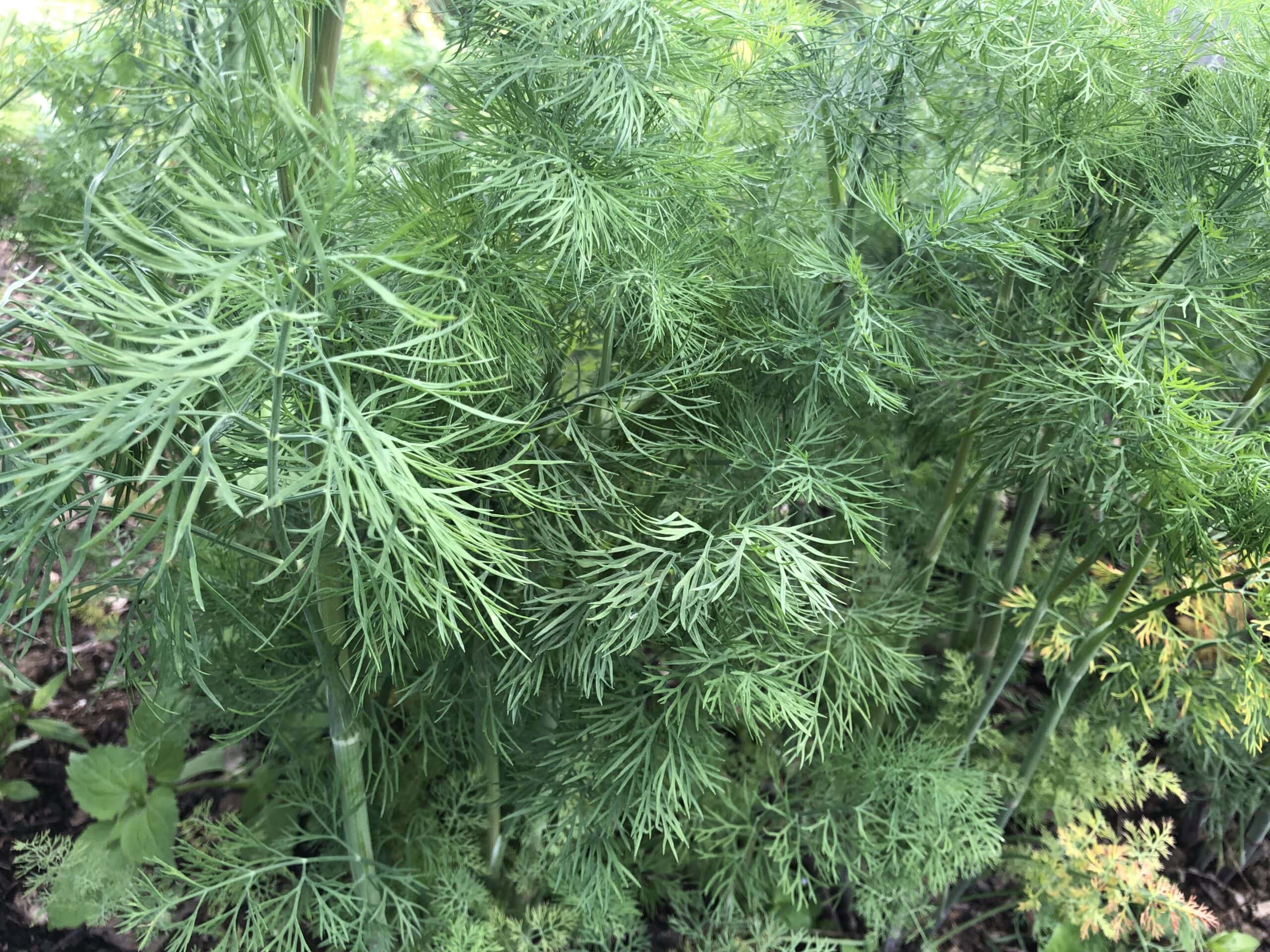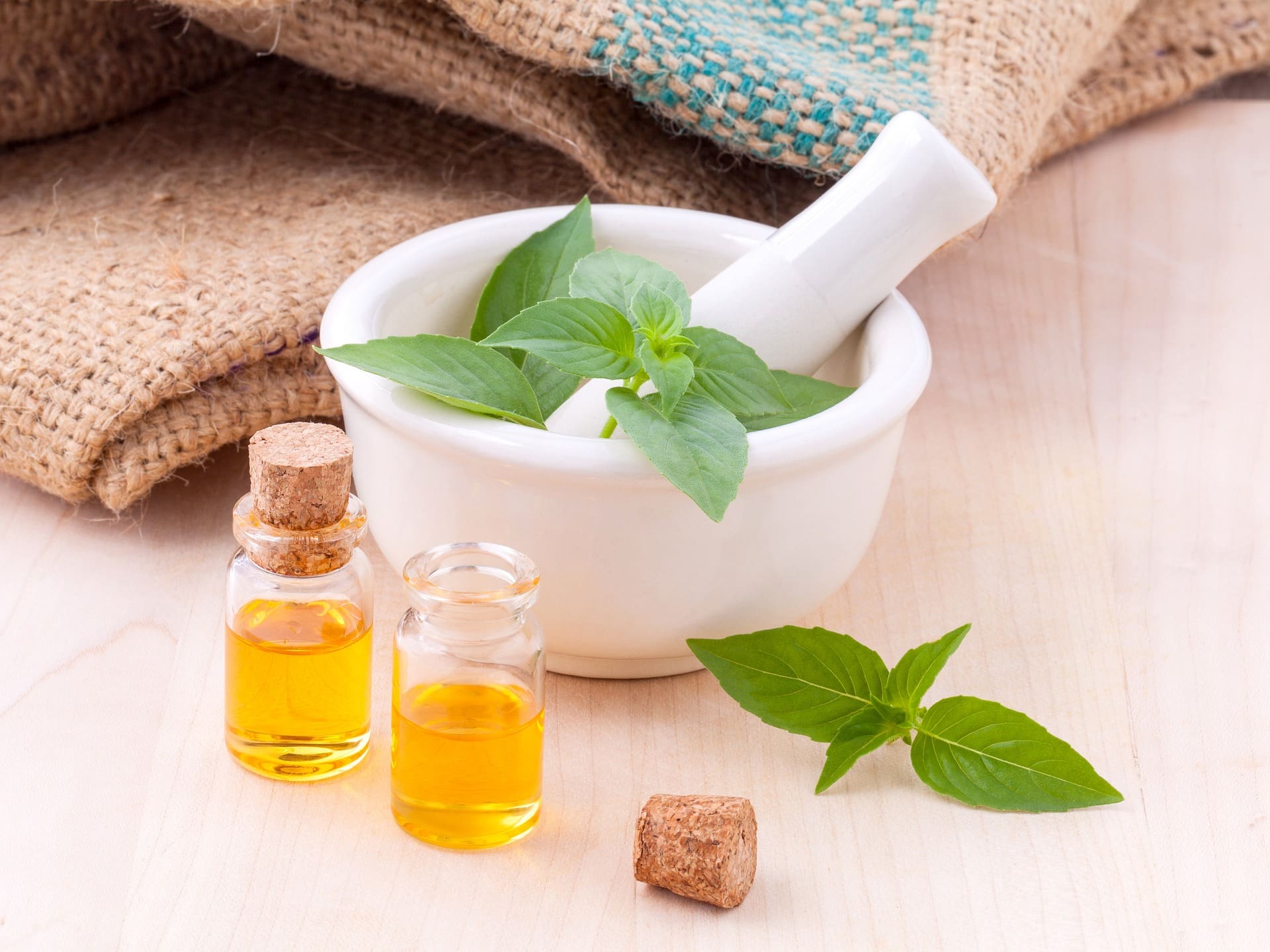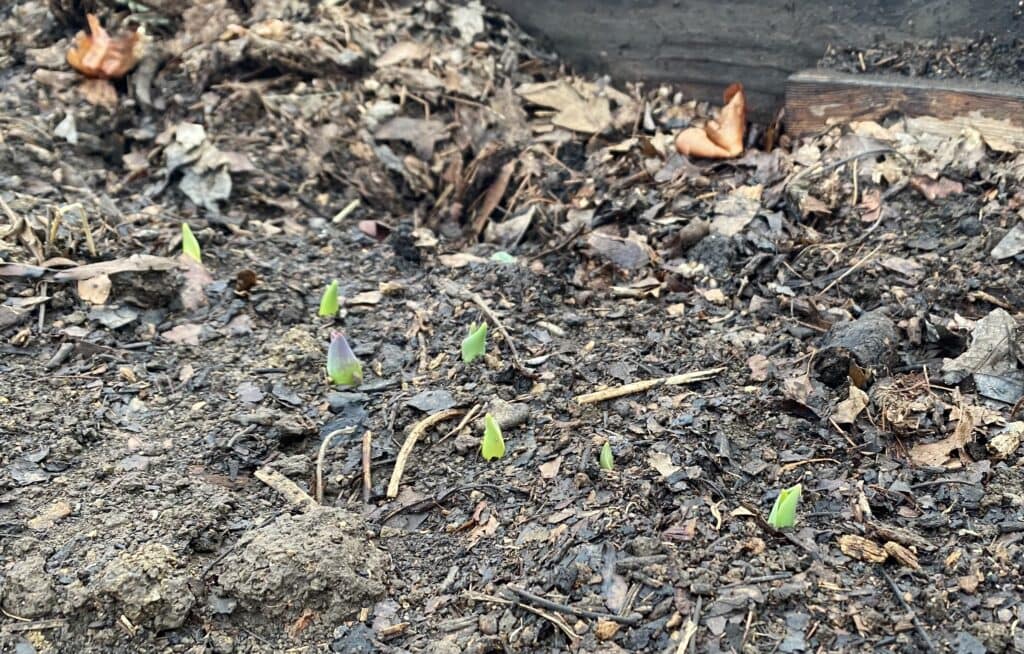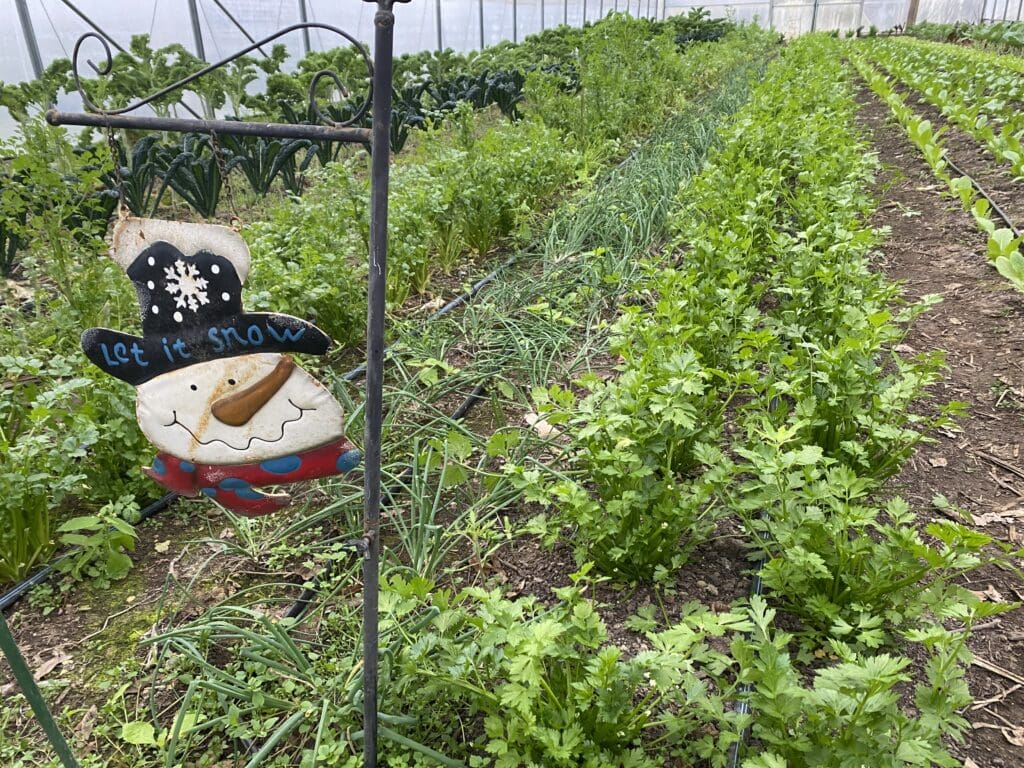This post may contain affiliate links. Probably doesn’t, but it might. It doesn’t cost you anything extra but if you use these links to buy something, we may earn a commission.
Herbs make your food taste good and also offer many health benefits. You can plant them in almost any location, so use your imagination and try different places to grow them in or around your home.
Add some in your flower garden, with the vegetables, in raised beds, or in a straight line. You could even grow them outside your kitchen window or mix them with an annual flower pot.
Do you want to make a nice entrance using fragrant herbs by the front door? You can use rosemary for good luck and tulsi basil for positive energy. You can plant herbs in a significant metal container, with mulch to stop weeds, or unique flexible pots called intelligent pots. Just ensure your herbs get at least six hours of sunlight daily, and you can have a beautiful herb garden.
Having a variety of herbs in your kitchen garden is just as important as growing vegetables & fruits. Herbs are necessary for cooking and can also be used for other purposes like medicinal remedies, cosmetics, & household tasks. If you grow your own herbs, you can use them freely and try out different types of herbs that might not be available at the store.
Highland Orchard Farm Market says, “These days, fresh herbs are sometimes hard to come by, and dried herbs don’t have the same flavor because they’ve been dried or stored for a long time. Since herbs are straightforward to grow, why not try planting them this year in 2023?”
Table of Contents
What are Culinary Herbs?
The word “herb” can be traced back to the Latin term “herba,” which denotes a green plant. It is reasonable to associate “herb” with the green and leafy portions of plants that grow in temperate environments, including stems, leaves, and flowers.
Herbs are not the same as “spices,” made from the roots, bark, buds, fruits, seeds, or berries of trees and plants that grow in temperate climates. Here, we are talking about cooking herbs, which are used in cooking for flavor.
Benefits of Growing Your Culinary Herbs in a Home Garden
Most mornings, except for the hottest months, I go outside to my front yard and pick some fresh herbs to add to my breakfast. Getting organic herbs so quickly and efficiently is something you can’t get from a grocery shop. Having my herb garden allows me to pick the flavors I need whenever I want them, and it saves me money and reduces waste. It is pretty simple to grow your herb garden, so I think it’s a good idea for anyone new to gardening, even if you live in an apartment. There are many good things about it, but let’s discuss the five benefits of growing your herbs.
Great for Beginner Gardeners
Although I enjoy my vegetable garden, I believe the most accessible part, to begin with, is the herb garden. It doesn’t take much effort to start, and it’s simple to grow. Additionally, you can eat something good for you.
Easy to Grow
It’s simpler to grow herbs than vegetables and sometimes even more accessible than flowers. You can plant herbs in pots inside or outside your house, or you can plant them directly in the ground outside, depending on how good the soil is where you live. You can even buy hydroponic kits like the AeroGarden to grow herbs inside your house.
Minimal Effort to Get Started
Starting an herb garden requires little effort, which is the advantage of growing your herbs. You can begin with seeds or you can also use transplants. Unlike some vegetables, herbs are pretty robust when transplanted, and they will give you fresh leaves to harvest almost immediately.
You can plant several herbs in one pot without difficulty. You can have your herb garden even if you don’t have a yard or live in an apartment. To get started, you only need a pot, some soil, and seeds/transplants. Unlike vegetable gardens, where you’ll need more area to get a decent harvest, herbs can live in a compact area.
Herbs Naturally Improve Health
By growing your herb garden, you can grow fresh, healthy, and organic herbs that may improve your health. Herbs can help boost your immune system, detoxify your body, and relieve common ailments such as colds, headaches, indigestion, and stress.
Healthy for Your Body
Culinary Herbs can add taste to your meals, but they can also offer many health advantages for you. Medicinal herbs are used in various forms, such as teas, essential oils, tinctures, and salves.
There are several medicinal herbs, such as calendula, echinacea, chamomile, feverfew, lavender, goldenrod, lemon balm, peppermint, oregano, St. John’s-wort, & yarrow. Here are some examples of specific herbs and their benefits.
-
-
- Peppermint is used to make teas that can uplift your mood, enhance concentration, alleviate nausea, and aid in digestion.
- Oregano contains a lot of antioxidative agents and is recognized for its ability to improve the immune system, fight against fungi, and kill bacteria.
- Cilantro is a beneficial herb that helps remove harmful heavy metals from your body during detoxification. It’s also a favorite in summer recipes!
-
Spending Time in a Garden is Healthy
Taking care of your herb garden can be good exercise and help you live a healthier life. It is another advantage of growing your herbs besides the health benefits of consuming them. Gardening can be good for your health in many ways. It can give you fresh air and sunlight and help you stay active. It leads to a healthier lifestyle. Gardening can also be the best choice for our mental health by allowing us to disconnect from technology & reduce stress.
Saves Money
One advantage of growing your herbs is that it can save you money. With developing your herbs, you don’t need to buy them from the store as frequently, which can reduce your expenses. Additionally, by growing what you need, you can avoid wasting herbs and money by not throwing away unused portions.
Save Money By Growing Your Culinary Herbs
Have you bought herbs? You probably have. Buying fresh/dried herbs can be expensive, especially if you buy organic ones.
Growing herbs can be inexpensive. Herbs are probably the cheapest plants to grow. While cultivating vegetables can also save you money, it can require more initial investment and knowledge. You can buy a pack of herb seeds for just a few dollars, and by learning how to save the seeds from your herb plants, you can grow them for years, even indefinitely. It makes herbs the most economical plant you can grow.
Your Own Garden Provides Fresh Herbs
Cultivating your herbs gives you access to fresh herbs that you can get at the shop, and you can have a steady supply of herbs for your cooking needs. By growing multiple herbs, you can add variety to the meals while still keeping them healthy.
Provides Fresher Herbs Than Store-Bought
When you grow your herbs, you can redefine what you mean by “fresh.” Have you ever bought spices from a grocery store and found that many leaves are wilted? It has happened to me many times, but when you grow your herbs, you can avoid this problem.
Herbs that you buy from a store are often picked long before they arrive at the store. It means that they may not be very fresh, and some of the leaves may be wilted. If you want to buy organically cultivated herbs, they may be in worse condition when they reach the store.
Adds Flavor to Your Dishes
When you buy herbs from the store, they may not taste as good as fresh ones because they have lost some flavor and nutrients. Freshly harvested herbs have the best taste and nutrients. If you pick fresh and organic herbs and use them in your food, you can taste the difference. The spices from the grocery store won’t taste as fresh as the ones you pick yourself.
Taste the difference
Using dehydrated herbs can be a cheaper and easier option than using fresh ones. Some herbs, like oregano and rosemary, can provide good flavor even when dried. However, if you want the best taste, using fresh herbs is usually better.
If you grow your herbs, you don’t need to worry about not having fresh herbs when needed. You can always pick fresh herbs whenever you need them. However, it’s still the best idea to have some dehydrated herbs on hand in case you need them in an emergency or to have in the winter season when your herbs may not be growing.
Add variety to your dishes.
Your herb garden is the perfect place to try out new and unique flavors. You can use your herbs to experiment with different recipes and taste combinations. Consider growing herbs you haven’t used before to challenge yourself to be more creative in the kitchen.
Highland Orchard Farm Market shared some exciting ways to use fresh herbs in cooking. For example, you can use basil for making pesto as a sauce for pasta or cook a French vegetable stew called soupe au pistou with it. You can also blend parsley into butter with fries or grilled artichokes and garlic for taste & texture.
Top Culinary Herbs to Grow in your Garden – How to Grow
-
- Basil: Basil is originally from warm places like Asia, and it needs abundant sunshine to grow well. It is hard to grow outside in colder areas. To help it grow better, you should pick off the leaves often and remove the growing tips so it gets bushier.
-
- Tarragon: There are two types of tarragon: French & Russian. French tarragon has a better taste; it is mild with a slight flavor of pepper and anise. It’s best to purchase tarragon plants in a pot or grow from the existing one. Cover the plants with straw during the winter to protect them.
-
- Chervil: This plant is also called “dill,” but it is different from dill for pickling. It grows every year from seed. Its leaves are small, feathery, and taste like anise. It should be grown in a location that gets partial sunlight, and the seeds should be planted directly in the ground during the spring/fall. Make sure to water the plants daily during the summer.
-
- Chives: It is about a plant that looks like grass and is part of the onion family. You can eat both its leaves & flowers. To grow it, you can plant seeds in the spring or divide already-grown clumps in the fall. You can find these plants at many nurseries.
-
- Cilantro: Growing cilantro in a hot environment can be a bit challenging. If you live in such an area, you should aim to start planting the seeds directly in the ground between February and March, depending on your environment. Cilantro is renowned for its uniquely flavorful leaves, which are best known for their use in Mexican cuisine, and its seeds are commonly used as a spice called coriander. It’s essential to harvest the leaves & water them frequently to prevent the plants from bolting. In milder climates, cilantro can also be grown in the fall. Additionally, cilantro is known for its ability to remove heavy metals from the body.
-
- Thyme: Thyme comes in many different types with different flavors. It’s usually better to buy plants instead of seeds. Once you have the plants, you can make more by dividing them, taking cuttings, or layering them. After the plant blooms, cut it back to make new leaves grow.
-
- Fennel: Fennel looks like dill, but it’s a different type of plant. You can plant fennel seeds directly in the ground from April onwards. In the fall, cut off all the leaves to level with the environment. You can keep the seeds from the plant and let them dry out to use in cooking. You can also make tea from the roots, which can help your tummy feel better.
-
- Marjoram: Marjoram needs lots of sun and warmth to grow well. It’s not easy to grow from seeds, so it’s better to purchase potted plants or make new ones by taking cuttings or dividing the roots. Marjoram also dries if you want to save it for later.
-
- Savory: Summer & winter savory are two types of plants that have small, green leaves that taste and look similar to thyme. Summer savory only lives for one year, while winter savory can return yearly. You can plant the seeds in either the summer/spring. The leaves taste better when they’re still young.
-
- Mint: Mint has lots of different flavors, like pineapple and ginger. This year we’re growing a type of mint that tastes like strawberries. Mint can overgrow and spread everywhere, so it’s better to plant it in a pot to keep it contained.
-
- Sage: It is a plant that always stays green and has purple, gray-green leaves, or a mix of colors. It’s easiest to start growing it from a small plant you buy. In the spring, you should cut back the parts of the plant that are already big. During the summer, you should remove any new shoots that start to grow, so the plant stays healthy and doesn’t get too big.
-
- Rosemary: Rosemary is a fragrant, perennial shrub that thrives in warm and sunny conditions. It can endure even the poorest of soils and is highly drought-resistant. Bees are drawn to its blooms, making it a popular food source. It’s recommended to prune the bushes in spring to maintain their shape. Rosemary is a fantastic herb for meat dishes due to its digestive properties.
-
- Dill: Dill is a plant that grows every year and has soft, feathery leaves that taste like anise, a sweet flavor. Dill’s seed heads are perfect for making pickles. Dill doesn’t like moving around, so it’s best to plant it directly into the ground between April & July. Don’t forget to water it often to ensure it doesn’t go to seed too early.
-
- Parsley: Parsley is a plant that has two types of leaves: curly & flat. It grows for two years. If you plant it from seeds, you have to wait a bit because parsley takes a while to start growing. Parsley tastes excellent in many dishes and can be good for your health.
5 Herbs to Attract Beneficial Insects
In addition to all the great tasting and healthy benefits, herbs help attract beneficial insects and they help deter pests. What great plants to add to the garden! By mixing the herb plants among your flowers or vegetables, you can help improve the pollination and help keep the bugs you don’t want away.
Chives, Sage, and Mint are particularly good at keeping rabbits away from the garden without resorting to traps or sprays. The flowers of the perennial herbs are very attractive to pollinators. Herbs are great at helping to maintain a healthy garden as well as healthy people.
Here is more information on the many benefits of the good bugs in the garden:
Ready to Grow Herbs at Home?
Herbs are a foundation group of plants for your home garden. They will bring added flavor as well as great pleasure to you in your garden. You will be able to taste the difference! Herbs help protect your other plants from unwanted bugs or other pests, and they help bring attractive pollinators such as butterflies to the garden. The many benefits of growing herbs makes it a joy to have them in your garden.
For more information on herbs:
About Highland Orchards: Completely surrounded by suburbia, our small farm has been growing beyond expectations since 1832 in this location.
Growing a wide variety of fruits, vegetables, and flowers, Highland Orchards provides true “farm fresh” for the community all year. If you want to shake the hand of the farmer who grows for you, here is the farm! With plants in the ground or under cover in tunnels, we grow for every season. A family farm, we have three different generations involved in running the farm right now.
Come see us to eat fresh, eat local, and eat well!
